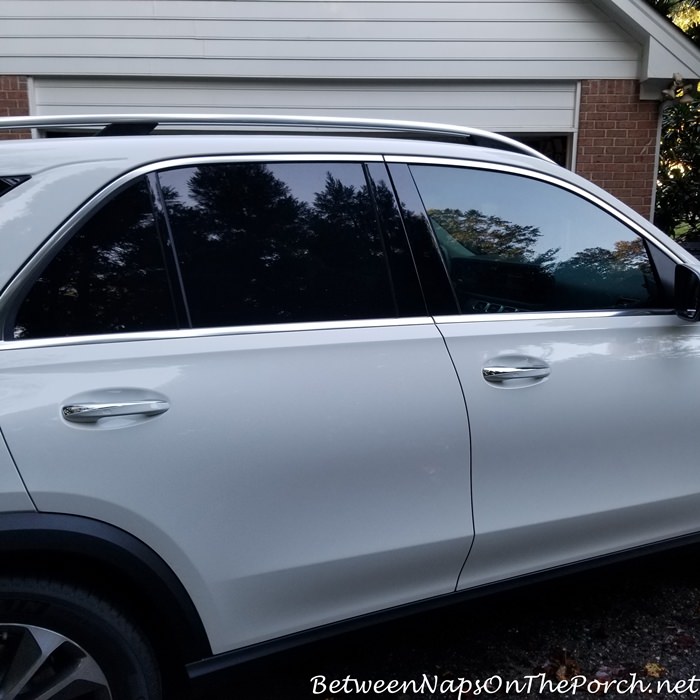Professional Window Tinting Services for Better Comfort and Style in Your Vehicle
Professional Window Tinting Services for Better Comfort and Style in Your Vehicle
Blog Article
Window Tinting Regulations: What You Required to Know Prior To Tinting Your Car
Comprehending home window tinting laws is necessary for any car proprietor considering tinting their auto. As you ponder enhancing your automobile's look and functionality, it is vital to understand not just the lawful implications however likewise the useful considerations that come with picking the right tint.
Significance of Understanding Color Rules
Recognizing window tinting regulations is critical for car owners to ensure compliance with state guidelines. These regulations determine the allowable degrees of color darkness and reflectivity, which can significantly vary from one territory to an additional. Falling short to abide by these regulations can cause fines, compulsory elimination of the color, and possible difficulties during car examinations.
In addition, recognizing these laws aids lorry proprietors make notified choices concerning their tinting alternatives. Various sorts of home window films provide different benefits, such as UV protection, heat rejection, and glare reduction. Without expertise of the legal restrictions, automobile owners risk picking items that may ultimately lead to lawful issues.
Furthermore, understanding of tinting regulations fosters a safer driving atmosphere. window tinting. Excessively dark colors can harm visibility, raising the danger of mishaps, specifically during the night or in adverse weather conditions. Police also make use of these laws to make certain roadway safety, making conformity not just an individual obligation but a legal obligation
State-Specific Tint Laws
Each state in the U.S. has actually developed its very own details regulations concerning window tinting, reflecting a diverse array of requirements and requirements. These policies can differ considerably, impacting exactly how car owners approach setup and conformity. Some states allow darker tints on back windows while imposing stringent limitations on front-side windows.
In addition, guidelines usually define allowed tint materials and colors. Specific states prohibit reflective colors altogether, while others may enable them to a limited degree. Additionally, some jurisdictions mandate that cars with tinted home windows present a sticker showing compliance with state legislations, providing a clear recognition for police.
Enforcement of these legislations additionally varies; some states are much more proactive, carrying out arbitrary checks, while others depend on issues or noticeable violations to initiate enforcement. Vehicle owners must know that failing to abide by state-specific tint policies can result in penalties, obligatory removal of unlawful tints, or both.

Lawful Color Percentages
Figuring out the lawful color portions is vital for vehicle proprietors looking for to abide with state laws. Each state has specific laws controling exactly how much light has to pass via the windows of a car, which is expressed as a percentage referred to as have a peek here Visible Light Transmission (VLT) This percent differs significantly throughout states and can depend upon the kind of window-- front side, back side, and windscreen.
For circumstances, some states allow as low as 20% VLT on front side windows, while others might permit as much as 50%. Windshield tinting is frequently a lot more limited, with numerous jurisdictions enabling just a narrow band of tint at the top of the windscreen. In comparison, back windows commonly have a lot more lenient policies, with some states permitting darker tints.
It is important for vehicle proprietors to acquaint themselves with their neighborhood legislations to avoid potential lawful concerns. This consists of understanding just how VLT is measured, as it can differ based upon the kind of window film used. Remaining informed about these guidelines makes sure compliance and promotes safe driving problems for both the lorry proprietor and others on the road.
Consequences of Non-Compliance
Stopping working to stick to window tinting legislations can result in substantial effects for vehicle proprietors. One of the most immediate effect is the possibility for traffic stops and citations from regulation enforcement. Officers educated to identify unlawful color levels might issue fines, which can vary by jurisdiction yet frequently range from modest to significant quantities. Repeated infractions might bring about raised fines, including higher fines or added points on a motorist's certificate.

Insurance provider may also impose fines for non-compliance, as illegal modifications can be seen as a violation of plan terms. This might impact coverage rates or bring about difficulties in insurance claims if an incident happens.
Ultimately, the consequences of non-compliance extend past instant monetary penalties; they can influence a click this vehicle driver's insurance policy rates, lawful standing, and overall vehicle value, emphasizing the significance of sticking to neighborhood window tinting guidelines.
Tips for Finding Tinting Options
When picking window tinting alternatives,Recognizing the ramifications of non-compliance highlights the value of making educated choices. Acquaint on your own with your state's certain laws pertaining to color darkness and reflectivity. Each state has special policies that determine the permissible limitations, so ensure you stay within these guidelines to prevent penalties.
Second of all, take into consideration the kind of color material. Alternatives include colored, metalized, and ceramic colors, each offering varying levels of warm denial, UV defense, and durability. Ceramic tints provide superior warm resistance without interfering with electronic tools, making them a preferred choice.
Additionally, examine your key objective for tinting. If you look for enhanced privacy, go with darker tints; however, keep in mind that this may influence visibility at night. Conversely, if glow reduction and UV defense are your primary worries, lighter tints may be enough.
Lastly, speak with a specialist installer that is well-informed concerning local policies and can advise top quality products matched to your needs (window tinting). Taking these variables right into account will ensure you make a knowledgeable decision, inevitably find out this here enhancing both your lorry's visual appeals and performance
Verdict
Finally, experience with home window tinting legislations is vital prior to using color to a car. Each state imposes specific guidelines concerning noticeable light transmission percents, specifically for front-side home windows and windshields. Non-compliance can cause considerable fines, including penalties and required removal of non-conforming color. By recognizing lawful needs and picking ideal tint materials, vehicle proprietors can accomplish aesthetic enhancement while staying certified with appropriate regulations. Adherence to these standards ensures both security and complete satisfaction.
Recognizing home window tinting regulations is essential for any car proprietor taking into consideration tinting their automobile.Understanding home window tinting legislations is important for automobile owners to ensure compliance with state policies. Some states permit darker tints on rear home windows while imposing rigorous restrictions on front-side home windows.
In contrast, back windows generally have more lenient regulations, with some states permitting darker colors. (window tinting)
In final thought, familiarity with home window tinting regulations is essential prior to applying tint to a vehicle.
Report this page